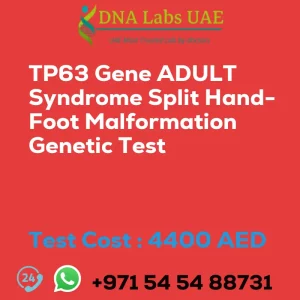KIF11 Gene Microcephaly with or without chorioretinopathy Lymphedema or Mental retardation MCLMR Genetic Test
Test Name: KIF11 Gene Microcephaly with or without chorioretinopathy Lymphedema or Mental retardation MCLMR Genetic Test
Components: Blood or Extracted DNA or One drop Blood on FTA Card
Price: 4400.0 AED
Report Delivery: 3 to 4 Weeks
Method: NGS Technology
Test type: Dysmorphology
Doctor: Pediatrics
Test Department: Genetics
Pre Test Information: Clinical History of Patient who is going for KIF11 Gene Microcephaly with or without chorioretinopathy, Lymphedema, or Mental retardation, MCLMR NGS Genetic DNA Test. A Genetic Counselling session to draw a pedigree chart of family members affected with KIF11 Gene Microcephaly with or without chorioretinopathy, Lymphedema, or Mental retardation, MCLMR NGS Genetic DNA Test gene KIF11
Test Details:
The KIF11 gene is associated with a genetic condition known as Microcephaly with or without chorioretinopathy, Lymphedema, or Mental retardation (MCLMR). This condition is characterized by a combination of microcephaly (abnormally small head size), chorioretinopathy (a disorder affecting the retina and choroid in the eye), lymphedema (swelling of the limbs due to fluid buildup), and intellectual disability.
The MCLMR NGS genetic test is a type of genetic test that uses next-generation sequencing (NGS) technology to analyze the KIF11 gene for any mutations or variations. This test can help in confirming a diagnosis of MCLMR and providing information about the specific genetic variant causing the condition.
Genetic testing for MCLMR can be beneficial for individuals suspected to have the condition, as it can provide a definitive diagnosis, inform prognosis, and guide appropriate medical management and genetic counseling. It can also be useful for family members of affected individuals, as it can help determine their risk of having a child with MCLMR.
It is important to consult with a healthcare professional or a genetic counselor to understand the implications, limitations, and potential benefits of genetic testing for MCLMR before undergoing the test.
| Test Name | KIF11 Gene Microcephaly with or without chorioretinopathy Lymphedema or Mental retardation MCLMR Genetic Test |
|---|---|
| Components | |
| Price | 4400.0 AED |
| Sample Condition | Blood or Extracted DNA or One drop Blood on FTA Card |
| Report Delivery | 3 to 4 Weeks |
| Method | NGS Technology |
| Test type | Dysmorphology |
| Doctor | Pediatrics |
| Test Department: | Genetics |
| Pre Test Information | Clinical History of Patient who is going for KIF11 Gene Microcephaly with or without chorioretinopathy, Lymphedema, or Mental retardation, MCLMR NGS Genetic DNA Test. A Genetic Counselling session to draw a pedigree chart of family members affected with KIF11 Gene Microcephaly with or without chorioretinopathy, Lymphedema, or Mental retardation, MCLMR NGS Genetic DNA Test gene KIF11 |
| Test Details |
The KIF11 gene is associated with a genetic condition known as Microcephaly with or without chorioretinopathy, Lymphedema, or Mental retardation (MCLMR). This condition is characterized by a combination of microcephaly (abnormally small head size), chorioretinopathy (a disorder affecting the retina and choroid in the eye), lymphedema (swelling of the limbs due to fluid buildup), and intellectual disability. The MCLMR NGS genetic test is a type of genetic test that uses next-generation sequencing (NGS) technology to analyze the KIF11 gene for any mutations or variations. This test can help in confirming a diagnosis of MCLMR and providing information about the specific genetic variant causing the condition. Genetic testing for MCLMR can be beneficial for individuals suspected to have the condition, as it can provide a definitive diagnosis, inform prognosis, and guide appropriate medical management and genetic counseling. It can also be useful for family members of affected individuals, as it can help determine their risk of having a child with MCLMR. It is important to consult with a healthcare professional or a genetic counselor to understand the implications, limitations, and potential benefits of genetic testing for MCLMR before undergoing the test. |








